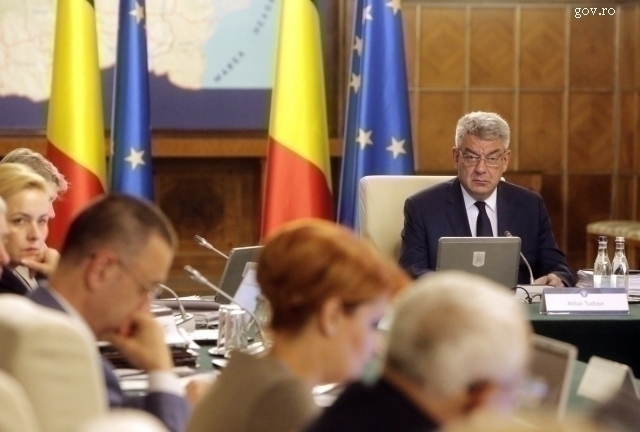Measures after devastating storms in Romania
The Romanian authorities have announced a number of measures after violent storms hit several regions

România Internațional, 19.09.2017, 13:14
Violent storms hit 15 counties in the west, north-west and the centre of Romania on Sunday, killing and injuring people and causing a lot of material damage. Helpless before the unleashed powers of nature, the authorities in Bucharest had to find some quick solutions to address the situation on the ground and take measures to limit the consequences. Prime Minister Mihai Tudose, who travelled to Timisoara, the city that was most severely affected by the storm, said his government would grant compensations for the damages. He said it was time Romania had in place a disaster alert system similar to that existing in other European states. Tudose said that, within two months at the most, the population would be able to receive emergency alerts on their mobile devices in case of unfavourable weather and take precautions.
“I had a meeting at the government with all mobile telephony providers, the Special Telecommunications Service, the National Authority for Management and Regulation in Communications, the agency that coordinates all these services. The alerts issued by various bodies, including the weather service or the fire department, go to the General Inspectorate for Emergency Situations and then to the mobile telephony providers in the affected areas, so everybody in the coverage area receives an alert text.”
The mayor of Timisoara Nicolae Robu says the current warning system is very rudimentary and that fewer victims and less damage would have been caused if people had been informed about the storm. The new, more up-to-date alert system relies on sending specific text messages to mobile telephony subscribers. The alerts will be sent depending on the emergency situations that may occur at regional level, including extreme weather phenomena, major fires, risks of explosions and other calamities and threatening situations. A public information campaign will also begin in parallel with the implementation of the system to train the public on how to use the system.
The European regional policy commissioner Corina Cretu, who was on a trip to Zalau, said Romania can receive support from the European Union to address the effects of extreme weather phenomena. She explained that the Romanian authorities have 12 weeks to access the European solidarity fund, but that they can also use money from the regional development fund for reconstruction. Corina Cretu:
“First of all, the national authorities have to make an assessment of the damage. They have at their disposal the solidarity fund that provides assistance to member states. After the earthquake in Italy, we changed the legislation in the European Parliament so that states hit by natural disasters can use 95% of the regional development fund for reconstruction. So I am here to tell you that the European Union will help Romania, as it has always done.”
Last but not least, Romania will begin an information and prevention campaign about the negative effects of dangerous weather phenomena caused by climate change. (Translated by C. Mateescu)






























